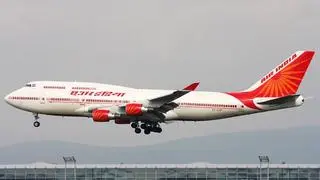Ethiopian Airlines is Africa’s largest carrier, and also its most profitable. In eight years, while the airline accumulated $800 million in profits, the rest of the African aviation sector incurred losses of $1.5 billion. The airline is now buying more aircraft to expand its long haul fleet and wants to improve the connection between India and Africa. Chief Executive Officer Tewolde Gebremariam tells Amrita Nair-Ghaswalla that it is time for India to expand its bilateral service agreement. Excerpts from an interview:
Give us an idea about your operations in India.
We are getting very good traffic from India. Ethiopian Airlines currently operates 14 flights per week to Delhi and Mumbai, with two daily flights from Mumbai and one from Delhi. Soon, we will start an additional daily flight from Delhi to Addis Ababa. We are looking to start operations from Chennai or Bengaluru. We also operate freighter services to Chennai, Bengaluru, New Delhi and Mumbai.
What do you think the Indian government should do?
Expand the bilateral air services agreement for more frequency and gateways. We have gateways, but we need frequencies for we have reached the limit. In the past, the market had not grown and we agreed on 28 flights a week. Now, the market has really grown. We want to expand in India.
Why do you want to expand in India?
We have reached a very fluid situation today. At the moment, the connection between India and Africa is not that convenient for customers, since most airlines have withdrawn from this route. South African Airways withdrew from Mumbai last year (the airline has been flying to India for 19 years), and Air India too has withdrawn from many points in Africa.When the DGCA (Directorate General of Civil Aviation) gives us more frequency, then in co-operation with Air India, we can cover the continent. Air India and Ethiopian Airlines are part of Star Alliance, the 27-member international airline's club, and have a code share pact.
Do you think the Indian government is being rigid?
No, they are not being rigid. We are unfortunately caught between a transformation taking place. As you know, the Arabian Gulf carriers have been accused of benefiting from unfair state subsidies. Then Indian airlines complained about the Gulf carriers. They are absolutely right in doing so. Now, the (Indian) government is concerned about its national carrier. Our request came just at that point.
In the event of a no-go, what is your Plan B?
There is no Plan B as of now. We are very confident that India will accept our request. It is a very strong case that we are presenting. Since Air India is not ready to fly to more points in Africa, it is only logical for the Indian government to use Ethiopian Airlines as a gateway, as a bridge.
As long as it is operational for both carriers, so one can be assured that it will be a win-win for both carriers.
Ethiopian Airline appears to be buying a number of aircraft...
We have an average life span (fleet age) of just five years, which is the youngest across carriers. As of now, we have 56 airplanes on order, 14 of them are Airbus, and most are Boeing aircraft.
We also have the Bombardier Q-400 double cabin, the Boeing 787, Boeing 777-300ER, Boeing 777-200LR, Boeing 777-200 Freighter. Ethiopian is the first airline in Africa to own and operate these aircraft. Globally, Ethiopian Airline operates to 111 destinations, including 91 international ones. With a fleet of 68 Boeing aircraft, we will add two Airbus aircraft, one in June and in August.
In 2013,we announced a plan to double our Q400 fleet from 13 to at least 26 aircraft by 2026. This year's order is part of the fleet expansion plan, and is set to increase Ethiopian Airlines' Q400 aircraft fleet to 19 planes.
(This correspondent was in Addis Ababa at the invitation of Ethiopian Airlines)







Comments
Comments have to be in English, and in full sentences. They cannot be abusive or personal. Please abide by our community guidelines for posting your comments.
We have migrated to a new commenting platform. If you are already a registered user of TheHindu Businessline and logged in, you may continue to engage with our articles. If you do not have an account please register and login to post comments. Users can access their older comments by logging into their accounts on Vuukle.